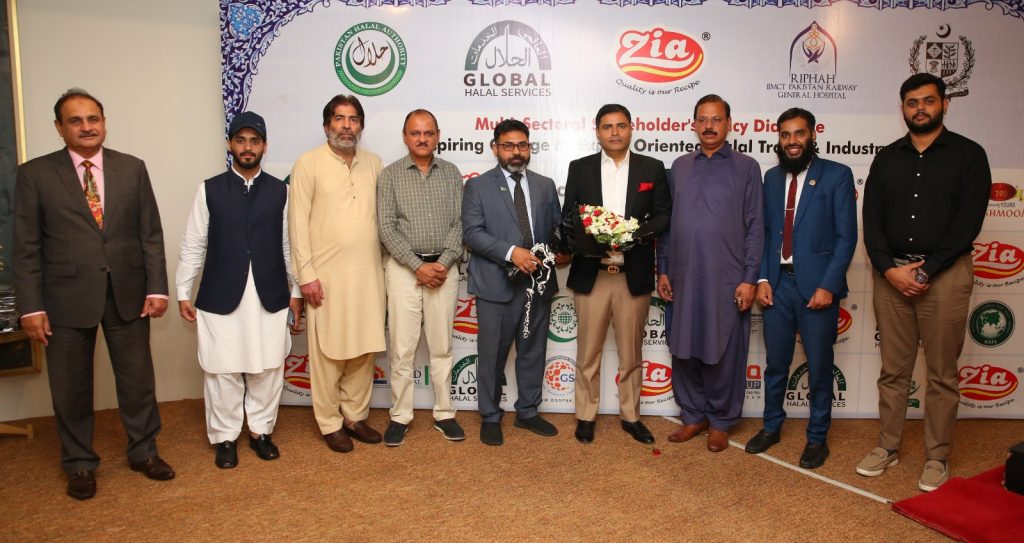By Shawkat Ali – The Business Standard

Bangladesh cannot explore its full potentials in the global halal food market due to a certification issue relating to such products.
To speed up the exports of halal products, the Bangladesh Standards and Testing Institution (BSTI) has announced that it will issue certificates to manufacturers but it has not yet started the process in the last three weeks.
BSTI Deputy Director Md Reazul Haque told The Business Standard, “Work is underway to form an audit team soon. In the meantime, various institutions are applying for halal certificates.”
More than 20 food exporters have already applied to BSTI for certificates, sources at the government agency have said.
Since 2007, the Islamic Foundation has issued certificates to about 140 companies on manufacturing halal products. More than 100 of them are involved in the production and marketing of food products. They have about 700 halal brand products.
Alongside such big companies as Square, Pran, ACI, Bengal Meat and Bashundhara, multinational companies like Nestle Bangladesh are among the manufacturers which have received licences from the Islamic Foundation.
BSTI officials say they will accept the kind of standards that Muslim countries around the world maintain with respect to halal products. That is because the export market is the main target of those who will receive the certificates from BSTI.
BSTI has a 13-member committee that verifies the standard of various products and issues certificates accordingly.
An audit team will be formed consisting of members of this committee, technical persons, Islamic scholars and experienced teachers from the Islamic University.
The team will monitor a range of areas, such as raw material collection, manufacturing, factory conditions, product quality and marketing methods.
The monitoring reports will be reviewed by the 13-member committee and certificates will be issued to companies that can meet the requirements. If there are any shortcomings on the part of the applicants, they will be provided with suggestions to rectify them.
As there is no study on the country’s marketing of halal food, manufacturers do not have much idea about it. But they do say that halal certificates are more useful in exports than within the country.
The “State of the Global Islamic Economy Report 2020/21” provides insights into the global market for halal food. The report notes that consumers spent $1.17 trillion on halal food worldwide in 2019, which is 3.1% higher than in the previous year.
Owing to the Covid-19 pandemic, sales of halal food were expected to decline by 0.2% in 2020.
Muslim countries expect sales to grow at a rate of 3.5% per year to $1.38 trillion by 2024. The current market for halal products, such as food, cosmetics, clothing and pharmaceuticals, is estimated at $2.02 trillion, according to the “State of the Global Islamic Economy Report 2020/21”.
“As a Muslim country, the arrangement of halal food is everywhere in our country. However, in this case, the certificate, which is provided in compliance with standards, gives more assurance to consumers,” Md Parvez Saiful Islam, chief executive officer (CEO) of Square Food and Beverages, told TBS.
“All Square products are exported abroad. Halal certification plays a key role in the growing global demand for food.”
Halal food manufacturers say they put more importance on exports than business growth in the country’s market since there is a good demand for halal food in different countries. That is why certification is so important.
“A proper combination of food safety and nutrition is the halal brand, where there will be no harm to the body. Here Islamic culture and science work together,” AFM Asif, CEO of Bengal Meat, told TBS.
“We need this halal certificate for export mainly.”
For a long time, the Islamic Foundation has been conducting the process of issuing certificates in accordance with the standards of Islamic countries, where all the processes such as raw material, production process, storage and transportation are observed in the production of goods in accordance with Islamic customs till they reach consumers.
Personnel at BSTI and the drug administration also remain linked to the issue of a verification of quality in issuing halal certificates. The foundation provides certificates as long as there are no haram and harmful ingredients in products.
Why halal products
Experts say the main theme of halal is to produce quality products without adding any harmful ingredients to health and without adding any ingredients that are forbidden in Islam.
Experts say halal products are a matter of physical and mental comfort for the Muslim community. There is an idea that the taste of halal products varies too.
Dr Md Monirul Islam, member director of Bangladesh Agricultural Research Council, has been carrying out studies on the nutrition and quality of food products for a long time.
“In Islam, the main idea of halal is to prepare halal and nutritious products in accordance with eating-related instructions which are considered to be soothing for the body and mind,” Dr Monirul Islam told TBS.
“Not only in Muslim countries but also in Europe and America, the demand for halal products is increasing. To expand the market share, we have no choice but to produce quality halal products fast.”



